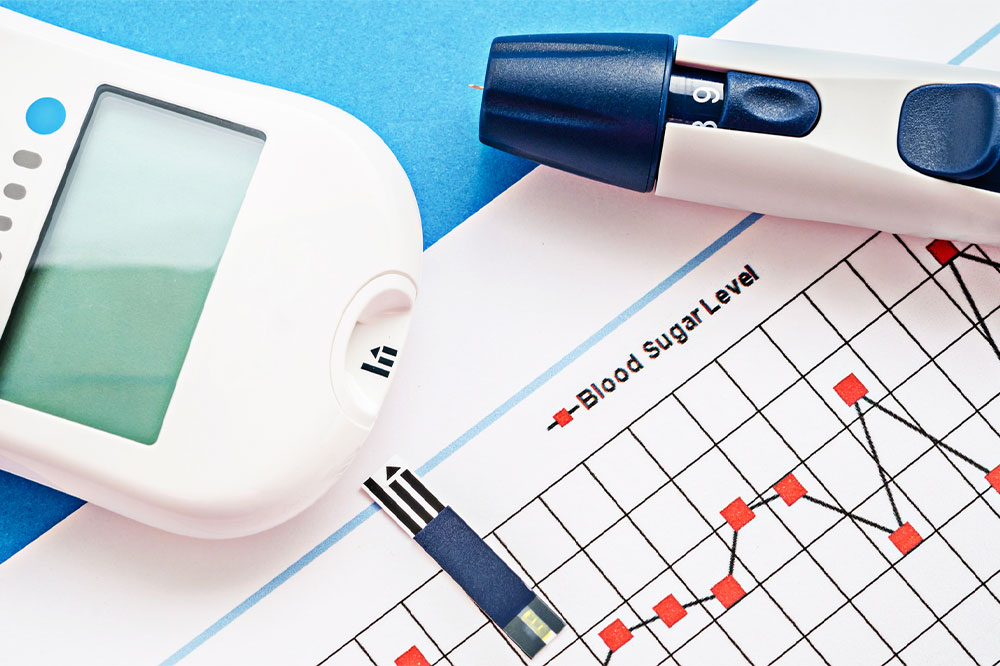Effective Lifestyle Methods to Maintain Healthy Blood Sugar Levels and Promote Overall Wellbeing
Discover comprehensive, scientifically backed strategies to naturally maintain healthy blood sugar levels. This detailed guide emphasizes diet, exercise, sleep, stress management, and hydration, providing practical tips to prevent and manage diabetes while improving overall health. Suitable for those seeking to improve metabolic function and reduce health risks associated with high blood sugar, these lifestyle changes promote long-term wellness and vitality.

Effective Lifestyle Methods to Maintain Healthy Blood Sugar Levels and Promote Overall Wellbeing
Maintaining balanced blood sugar levels is a cornerstone of good health, especially for individuals at risk of or managing diabetes. Proper regulation of glucose in the bloodstream not only helps prevent chronic complications such as cardiovascular disease, nerve damage, and kidney issues but also enhances overall energy and vitality. Managing blood sugar isn't solely dependent on medication; rather, a combination of lifestyle adjustments, dietary habits, and stress management can significantly influence glucose stability. This comprehensive guide explores proven strategies—rooted in scientific research and practical experiences—that can help individuals naturally regulate blood sugar levels, improve metabolic health, and lead a more vibrant life. Whether you're proactively preventing issues or managing existing conditions, these tips serve as valuable tools for health preservation and risk reduction.
Key Strategies for Healthy Blood Sugar Control
Increase Dietary Fiber Intake
Incorporating more dietary fiber, particularly soluble fiber, into your daily diet is proven to have a positive impact on blood glucose regulation. Foods rich in soluble fiber, such as oats, barley, fruits like apples and berries, and vegetables like carrots and Brussels sprouts, slow down the absorption of sugar into the bloodstream, leading to more stable glucose levels. Not only does this improve glycemic control, but it also contributes to better digestion and cardiovascular health. Incorporating fiber-rich foods into every meal can help prevent spikes after eating and support long-term metabolic health.
Stay Adequately Hydrated
Proper hydration plays a crucial role in maintaining optimal blood sugar levels. Drinking sufficient water helps dilute excess glucose in the bloodstream, facilitates kidney function in flushing out surplus sugar, and supports overall metabolic processes. Aim for at least 8 glasses (about 2 liters) of water each day, adjusting based on activity level, climate, and individual needs. Staying well-hydrated also helps prevent dehydration-related increases in blood sugar concentration and can reduce the risk of developing insulin resistance over time.
Prioritize Quality Sleep
Sleep is often overlooked but is vital for maintaining healthy glucose metabolism. Chronic sleep deprivation or irregular sleep patterns are linked to higher blood sugar levels, increased insulin resistance, and greater risk of type 2 diabetes. Aim for 7-9 hours of quality sleep per night. Establishing a consistent sleep routine, limiting screen time before bed, and creating a restful environment can significantly enhance sleep quality. Adequate rest allows the body to regulate hormones, including insulin, effectively promoting stable blood sugar levels and overall metabolic health.
Manage Stress Effectively
Stress triggers hormonal responses, such as the release of cortisol and adrenaline, which can lead to elevated blood sugar levels. Chronic stress, in particular, exacerbates insulin resistance and hampers glucose regulation. Incorporate stress reduction techniques into your daily routine—meditation, deep breathing exercises, yoga, or mindfulness practices—to help lower cortisol levels and maintain emotional balance. Additionally, engaging in hobbies, spending time in nature, or practicing relaxation techniques can significantly support a stress-free, healthy lifestyle and contribute to better blood sugar management.
Adopt a Balanced and Nutritious Diet
Eating a diet rich in essential nutrients supports the body’s natural ability to regulate blood sugar. Focus on consuming whole grains such as brown rice, quinoa, and oats; lean proteins like chicken, fish, beans, and legumes; and healthy fats from sources such as avocados, nuts, seeds, and olive oil. Minimizing refined sugars and processed foods reduces blood glucose spikes and helps sustain more stable energy levels throughout the day. Additionally, incorporating a variety of colorful fruits and vegetables provides antioxidants and phytochemicals that support cellular health and metabolic function.
Engage in Regular Physical Activity
Exercise is a powerful tool for managing blood sugar, improving insulin sensitivity, and controlling weight. Activities such as brisk walking, cycling, swimming, or strength training stimulate muscle activity, which uses glucose for energy, thereby lowering blood sugar levels. Aim for at least 150 minutes of moderate aerobic activity each week, along with muscle-strengthening exercises twice weekly. Consistent physical activity not only helps prevent obesity—one of the main risk factors for insulin resistance—but also boosts mood and enhances overall cardiovascular health.
Incorporate Healthy Cholesterol and Fat Sources
Good cholesterol, specifically HDL (high-density lipoprotein), plays a key role in metabolic health and blood sugar regulation. Consuming omega-3 fatty acids, found in fatty fish like salmon and mackerel, as well as flaxseeds, walnuts, and chia seeds, can help improve lipid profiles and reduce inflammation. These healthy fats support insulin function and promote better blood glucose control, while also aiding in the reduction of bad cholesterol (LDL) levels.
Limit Alcohol and Avoid Smoking
Alcohol consumption and tobacco use can impair blood sugar regulation and exacerbate insulin resistance. Alcohol, especially in excess, can cause unpredictable blood sugar fluctuations, while smoking damages blood vessels and impairs cellular metabolism. To maintain optimal blood sugar health, it is advisable to limit alcohol intake and seek support to quit smoking. These lifestyle choices not only improve metabolic health but also significantly reduce the risk of cardiovascular diseases, which are common complications of high blood sugar.
Conclusion: Take Proactive Steps for a Healthier Future
Adopting these natural, scientifically supported strategies can empower you to better manage your blood sugar levels, decrease dependence on medication, and enhance your overall health. Remember, prevention is always preferable to treatment. Making modest lifestyle changes today can prevent the development of serious health issues tomorrow. Prioritize a balanced diet, regular exercise, stress management, sufficient sleep, and proper hydration to support your body's metabolic needs. Your proactive steps now will pay dividends in long-term health, vitality, and quality of life. Stay committed to these practices, and enjoy the benefits of a healthier, more energetic life.





